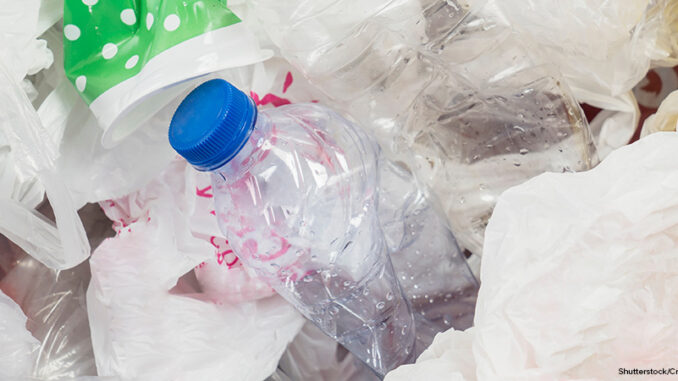
House Democrats Won’t (Yet?) Call Full Vote on Impeachment
In yet another impeachment-related development, Democratic Speaker of the House Nancy Pelosi announced last week that she would not hold a full House vote to authorize the impeachment inquiry against Donald Trump. According to Pelosi, there is no need for a vote because, quite simply, the Constitution doesn’t require one. But Trump and Republican leadership are still pushing for one. Why? Because it’s always possible that enough votes aren’t there. Additionally, a vote could put some Democrats in particularly vulnerable, “battleground,” pro-Trump districts in a tight spot. And Republicans point out that resolution votes have been used in the past as part of the process during both the Clinton and Nixon impeachment inquiries.
Some Democrats want a vote as well because they think it will lend validity to the inquiry process. Also, it might force some vulnerable “battleground” Republicans to take a stand one way or the other on the issue. The White House continues to insist that without a vote, the process isn’t valid and so the White House won’t cooperate with the process.
Pelosi hasn’t completely ruled out the possibility of a vote in the future. In other words, she can always opt to do one later. But she and other lead Democrats insist that if they decide to do a vote, it will not be because they were pressured into it by Trump or the Republicans.
What Do You Think? Imagine that you are House Speaker Nancy Pelosi. Would you call a full House vote on the impeachment inquiry? Why or why not?
The Cost of Cheap Chicken
Are you a Costco fan? If so, have you ever tried their $4.99 rotisserie chicken? This is one of the store’s most popular items: last year alone, they sold 91 million of them. There’s even a Facebook page with almost 13,000 followers dedicated to the beloved bird.

Unfortunately, there’s a problem: the cost of chicken in general keeps going up, as U.S. consumers consume more of this meat than ever before. This has caused other stores, such as Walmart, to raise the price of their rotisserie chicken by a dollar or two each. But Costco refused to do this, and in order to keep its price at $4.99, the store has lost $30 to $40 million per year. Now, however, Costco has taken a drastic step: it has purchased a $450 million poultry complex in Nebraska. That way, it will be able to hatch, grow, and process its own chickens, without having to worry about fluctuating market prices. Costco believes that by doing this, they will ultimately save about 35 cents per bird.
Like Costco itself, this poultry complex is no small operation. Covering nearly 400,000 square feet, the plant will employ 950 workers and process about 100 million chickens per year. Unfortunately, this has led to a lot of criticism of the plan, especially from Nebraska residents, who are opposed to the plan and concerned about the environmental impact. Opponents are also concerned that local farmers are contracting with Costco and investing a total of about $350 million of their own money to build barns to house the chickens–which they will lose if the plant fails.
Dig Deeper In economics, what is it called when a company purchases all of the steps needed to produce an item?
The Future of Recycling: Reusing?
It’s no secret that plastic waste is one of the biggest problems plaguing our environment. To reduce it, cities are passing bans on single-use plastic bags, while restaurant chains have stopped using plastic straws. Nevertheless, the biggest plastic-producing culprits are companies, which still use mountains of plastic in their packaging because it’s cheap and disposable. Is this an unsolvable problem? A man named Tom Szaky says no.
Szaky runs a New Jersey recycling company called TerraCycle. In May, he launched a program called Loop which he believes may be the solution to the corporate plastic crisis. Here’s how it works: you (the consumer) purchase many of your everyday household products–such as shampoo and detergent–online from Loop instead of from the store. You pay a small refundable deposit, and the item is delivered to you. When you’ve used up all of the product, rather than throw the container out, you put it in a Loop tote, leave it on your doorstep, and it is picked up and sent back to Loop. Loop cleans and refills the container, then returns it to you.
Szaky admits that this is a challenging business model. Most American consumers have gotten into the habit of just throwing things away when we are finished with them. So if we are going to take the extra step of saving the package, the process needs to be as easy and convenient as possible. Szaky hopes that the convenience of having items delivered–as well as the fact that Loop handles all of the cleanings of the containers–will be enough to motivate people to participate. And he might be right: so far, the Loop inventory includes 120 products. Szaky has also set up partnerships with several major retailers so that Loop products will soon be available for pickup and drop-off in regular stores as well. And more than 10,000 people already use the service in the U.S. and France.
What Do You Think? Would you use a service like Loop? Why or why not?
The Science of Poverty
It’s always exciting to find out each year’s Nobel Prize winners, and this year is no exception. There are three of them: Abhijit Banerjee, Esther Duflo, and Michael Kremer. And they received the Prize for finding ways to essentially apply the scientific method to an age-old problem: poverty.
Their argument for the past fifteen years has been basically that, for too long, programs and policies aimed toward relieving poverty have been based on assumptions, rather than actual evidence. So they began applying the randomized controlled trial (RCT) to poverty research. In other words, just like you’ve learned in science class, you test the effectiveness of a program or policy by comparing its results to the results for a “control” group. This method is now being used to study everything from the underlying reasons why people are poor, to the usefulness of specific poverty programs, laws, or policies.
So what has been the outcome of applying the scientific method to poverty? It’s been overwhelmingly positive and has been used to test policies and programs aimed at helping the poor worldwide. But scientists who support this method argue that it’s not used nearly widely enough. Only a very small percentage of health and poverty programs around the globe actually study the impact of their programs. But the three winners say that they will use their $915,000 prize money to continue their research and help bring more attention to this technique.
